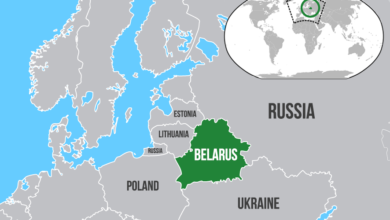France Télécom, the main telecommunications company in France, is reeling from a wave of staff suicides that has seen 24 workers take their lives in the past 20 months. Many of the victims killed themselves at work or have left letters blaming work conditions for their despair. The suicides are clearly related to the privatization of the formerly state-owned company.
The latest suicide was a 51-year-old father of two who jumped to his death from a highway overpass after leaving a note blaming pressures at work.
France Télécom workers staged a two-day strike the first week of October to protest working conditions at the company. Company promises to negotiate a “new social contract,” including counseling and other programs to combat workplace stress, failed to convince unions to halt the protest.
Up to 40 percent of the company’s 100,000 workers took part in the stoppage and hundreds staged peaceful rallies in Paris and several other cities.
France Télécom’s deputy chief executive Louis-Pierre Wenes, architect of the privatization and modernization drive at the former state-owned company, resigned due to union and public outrage over the employee deaths.
France Télécom says the suicides are prompted by personal, not professional, causes. However, a BBC correspondent in Paris says the firm concedes that the cultural and organizational changes required by the move from a French public company to a competitive multinational were bound to cause stress.
France Télécom is the third-largest telecommunications company in Europe and one of the largest in the world. It currently employs about 191,000 people, half of which work outside of France, and has nearly 159 million customers worldwide.
Once a government-run company, France Télécom began to “restructure” and privatize back in the 1990s. The government guaranteed that the employees would keep their jobs, but this was a lie. Since 1998, some 40,000 jobs have been lost.
There is pressure on many employees either to leave or to accept the new working conditions. Workers are required to achieve new “performance targets.” Others were forced to uproot their lives and move to other parts of the country. This has led to workers burning out and, in extreme cases, committing suicide.
The unions say a never-ending drive for efficiency is causing emotional havoc in the workforce—especially among older employees recruited when France Télécom was part of the public sector.
Experience has taught us that “restructuring” and “efficiency” are ruling-class code words for layoffs, worker speed-ups and price increases. It is all part and parcel of the thirst for increasing profits for the ruling class.
Privatization has never been a good thing for workers. It represents a take-back of what workers fought for. Privatization puts more and more control of the means of production in the hands of fewer and fewer people. Despair and alienation, the by-products of capitalist belt-tightening, can only be remedied with struggle and a fighting mass movement. Socialism, not capitalism, puts workplace control back in the hands of the workers.
The latest suicide was a 51-year-old father of two who jumped to his death from a highway overpass after leaving a note blaming pressures at work.
France Télécom workers staged a two-day strike the first week of October to protest working conditions at the company. Company promises to negotiate a “new social contract,” including counseling and other programs to combat workplace stress, failed to convince unions to halt the protest.
Up to 40 percent of the company’s 100,000 workers took part in the stoppage and hundreds staged peaceful rallies in Paris and several other cities.
France Télécom’s deputy chief executive Louis-Pierre Wenes, architect of the privatization and modernization drive at the former state-owned company, resigned due to union and public outrage over the employee deaths.
France Télécom says the suicides are prompted by personal, not professional, causes.
However, a BBC correspondent in Paris says the firm concedes that the cultural and organizational changes required by the move from a French public company to a competitive multinational were bound to cause stress.
France Télécom is the third-largest telecommunications company in Europe and one of the largest in the world. It currently employs about 191,000 people, half of which work outside of France, and has nearly 159 million customers worldwide.
Once a government-run company, France Télécom began to “restructure” and privatize back in the 1990s. The government guaranteed that the employees would keep their jobs, but this was a lie. Since 1998, some 40,000 jobs have been lost.
There is pressure on many employees either to leave or to accept the new working conditions. Workers are required to achieve new “performance targets.” Others were forced to uproot their lives and move to other parts of the country. This has led to workers burning out and, in extreme cases, committing suicide.
The unions say a never-ending drive for efficiency is causing emotional havoc in the workforce—especially among older employees recruited when France Télécom was part of the public sector.
Experience has taught us that “restructuring” and “efficiency” are ruling-class code words for layoffs, worker speed-ups and price increases. It is all part and parcel of the thirst for increasing profits for the ruling class.
Privatization has never been a good thing for workers. It represents a take-back of what workers fought for. Privatization puts more and more control of the means of production in the hands of fewer and fewer people. Despair and alienation, the by-products of capitalist belt-tightening, can only be remedied with struggle and a fighting mass movement. Socialism, not capitalism, puts workplace control back in the hands of the workers.France Télécom, the main telecommunications company in France, is reeling from a wave of staff suicides that has seen 24 workers take their lives in the past 20 months. Many of the victims killed themselves at work or have left letters blaming work conditions for their despair. The suicides are clearly related to the privatization of the formerly state-owned company.





